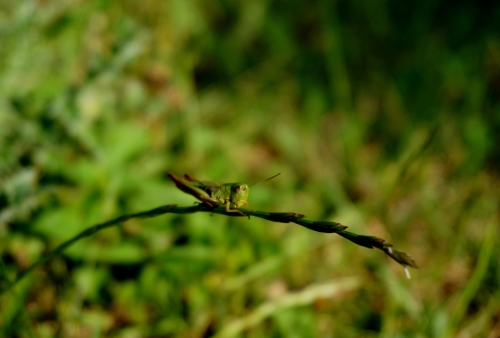 GMOs, like a lot of nutrition controversies, are a difficult topic to sift through. You might be asking yourself if they are healthy or unhealthy, if they hurt the environment or save it, and ultimately if you should buy into the idea that non-GMO foods are healthier? Here are a few things to know and a way to approach thinking about the whole debate.
GMOs, like a lot of nutrition controversies, are a difficult topic to sift through. You might be asking yourself if they are healthy or unhealthy, if they hurt the environment or save it, and ultimately if you should buy into the idea that non-GMO foods are healthier? Here are a few things to know and a way to approach thinking about the whole debate.
GMOs And Health
What everyone wants to know is: are genetically modified organisms hurting our health? We’re just going to say it outright – it is hard to answer this question. There have been many studies on the subject, but any given study is about more than its results. A range of factors must be weighed like design, duration, scope, authorship, sponsorship, and publisher. In the specific case of genetic modification, some examples of problems with the research are:
- Most studies use animals, and not everyone is convinced that researchers should put too much stock in animal studies.
- Determining dosage is a problem. Even water can kill you if you drink too much too fast. How should studies design dosages?
- Long term effects are hard to measure. Genetically modified produce was first approved in the 1980’s, giving us a few decades to look at the effects.1 However, those decades have not passed in a vacuum. Changes in medicine, lifestyle, and a plethora of other factors have happened concurrently and could be equally responsible for any percieved effect.
- Much of the research is funded by agricultural corporations because they have a large interest in it. That makes for conflicts of interest.
In the overall debate, each side claims that the other has not proven their position. Each side has scientific studies to cite and each claims that the studies on the other side are flawed, incomplete, or at worst untruthful. Knowing who to trust – or better said, deciding who to trust – is far from obvious. The debate is not just scientific anymore, it is political.
Should I Eat GMOs?
As you can see, it is very difficult to definitively answer this question. However, it helps to consider the larger picture. Over the last 50 years, large scale industrial agriculture has become the backbone of our way of eating, making processed food the staple of the American diet. This trend is the reason that corn and soybeans are the most widely grown crops in the country. They are the raw materials used to create processed foods.2 3 They also happen to be mostly GMOs. 88 percent of corn and 93 percent of soybeans grown in the United States are genetically modified.4
We understand the damage that processed foods do to our health and fitness. We know we need to switch to whole foods, locally grown and/or organic because it is a better pattern of eating. This switch, by eliminating processed foods, also reduces your intake of the genetically modified corn and soybeans used to produce it. In short, an eating pattern that makes you healthier automatically lowers your exposure to GMOs, which makes the debate, as far as you are concerned, academic.
The Environmental Impact
The environment question shares the same complications as with health. Here is a review of some of the most pressing topics.
Do GMOs Reduce The Use Of Chemical Inputs?
Some research has found that herbicide use goes down in fields with GMOs. However, it is not easy to measure and therefore difficult to prove. Herbicides are not equally powerful, meaning changes in amount could result from switching types, rather than introducing gentically modified crops. Furthermore, GMO related reductions in herbicide use are not generally sustained over time.5 For these reasons, the National Academies of Sciences Comittee On Genetically Engineered Crops states: “Researchers shoud be discouraged from publishing data that simply compares total kilograms of herbicide used per hectare per year because such data can mislead readers.”6
Do GMOs Kill Insects?
There is much concern over biodiversity loss, particularly with insects. The inherent difficulty here is that ecosystems are long chains of cause and effect and therefore difficult to understand. For example, monarch butterfly larva feed exclusively on milkweed. Therefore, one would expect GM plants that allow for a drastic reduction in milkweed density to ultimately lead to Monarch butterfly decline. Instead, the butterflies seem to produce more larva to compensate.7 Such unexpected twists muddy the waters of many ecological studies.
Do GMOs Cause Resistance?
There is a variety of ways that the answer might be yes. Planting crops that are engineered to withstand certain herbicides can inventivize farmers to rely on those herbicides and ignore other good crop management practices. In such cases, increases in resistance have been observed. Also, plants that are engineered to produce pesticides that mix with other plants can expose pests to a weakened dose of the pesticide. These conditions create a higher chance for resistance.8
Resistance is a real problem, and we should be vigilant. So far, none seem to deny that this is so. Even the Committee On Genetically engineered crops speaks only of “delaying” it.
Do GMOs Raise Food Production
Crop production has increased in the United States since the introduction of genetically modified organisms, but this is true for both genetically modified and non-genetically modified crops. It is possible that without GMOs, certain crops would have declined, but it is not easily proven.9 The overall trend could take years to decipher, if it can ever be fully understood.
Conclusion – What To Do About GMOs
For your personal fitness, the best strategy is to follow a healthy pattern of eating that includes lots of whole foods, locally and/or organically grown. Such a pattern of eating drastically reduces your exposure to GMOs, while boosting your health – which, after all, is the goal. You will encounter plenty of health foods that proclaim themselves non-GMO. While that may be a plus, non-GMO has not been shown to have a direct health benefit. In other words, we do not recommend buying something specifically for its non-GMO label. Avoid them because you are eating healthy, whole foods, and let the rest sort itself out.
Related
3 Ways Local Is Better, Just Not How You Think
Yes, Organic Is A Better Choice
References


